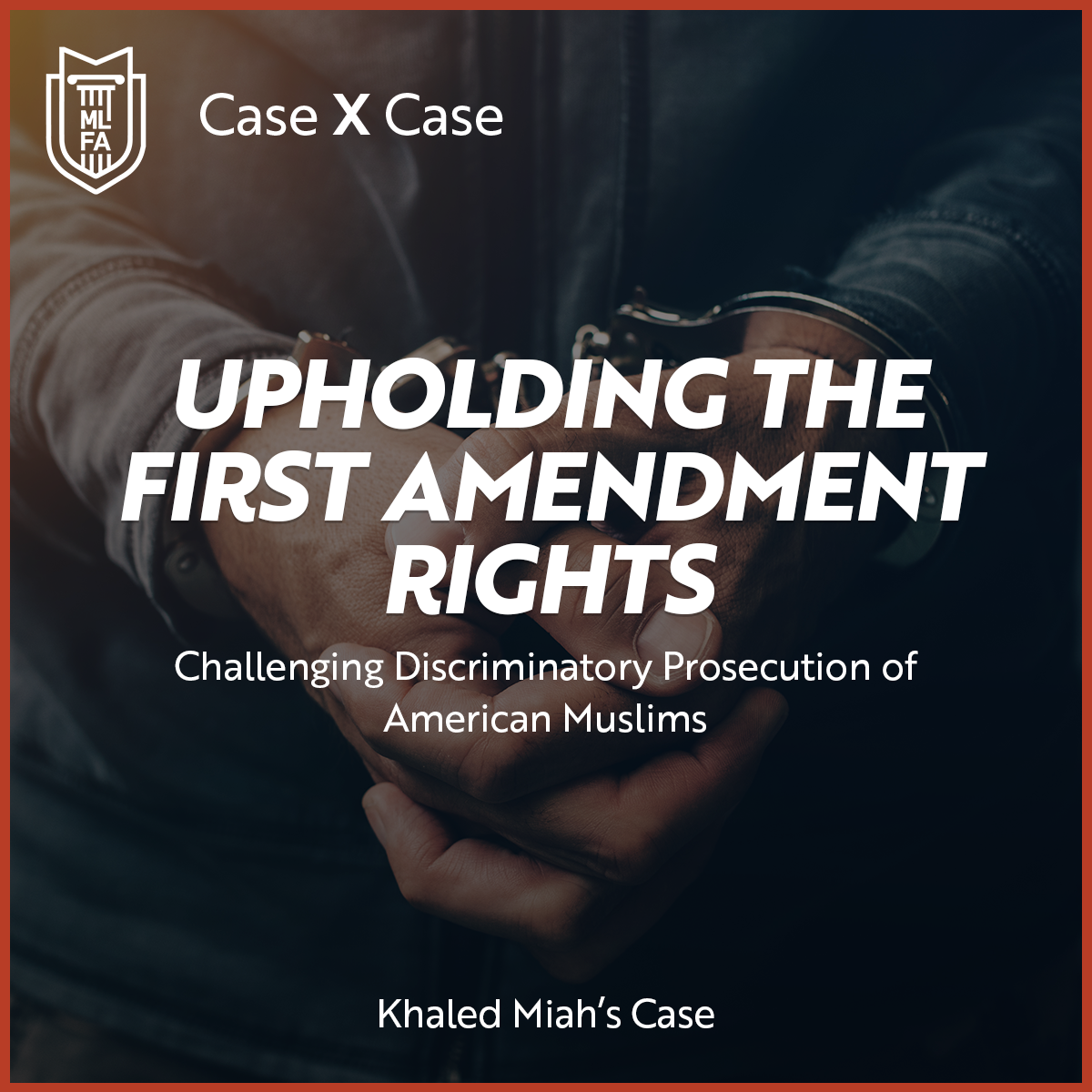MLFA files appeal to the Third Circuit Court of Appeals against Khaled Miah’s criminal convictions for making threats online
MLFA submitted its initial brief on behalf of Khalid in the United States vs. Miah to the Third Circuit Court of Appeals om June 5, 2023. MLFA’s Criminal Defense Department represented Mr. Miah in his criminal jury trial in the Western District of Pennsylvania in December of 2021.
The United States government maintains that anti-terrorism laws do not chill the free speech of American Muslims. In practice, however, the discriminatory approach of singling out Muslim speech for prosecution paints a different and disturbing picture of discriminatory prosecution – that picture is exemplified in the United States v. Khalid Miah.
Khalid Miah was arrested on January 6, 2021, not for storming the Capital, but instead for making vague alleged threats on Twitter against the FBI agents who investigated him. Despite the fact that the alleged threats were, at best, general in nature and similar in content to the speech surrounding the election, which was ignored by authorities, Miah was arrested, prosecuted and ultimately sentenced to six years in prison.
Mr. Miah is represented on appeal by attorneys Charles Swift and Sufia Khalid from MLFA’s Criminal Defense Department, along with Allie Hallmark of Hamilton Wingo, who joined the effort pro-bono. Mr. Miah’s attorneys argue that:
1. Miah’s online tweets were, at most, generalized threats that are protected by the First Amendment and not criminalized under federal law.
2. The Judge’s decision to exclude the public from jury selection prior to Miah’s trial was unconstitutional and contrary to Third Circuit law.
3. The Judge’s admission of unrelated bad character evidence during Miah’s trial was also contrary to well settled legal precedent in the Third Circuit, thereby creating a double standard for the trial of a Muslim accused of making threating statements.
4. The Judge’s sentence of six years, which is three times the average sentence for similar crimes, was unjustified by the facts and continues a twenty-year pattern of over sentencing Muslim defendants. The brief is available here.
Khalid Miah’s case is important, not because MLFA supports what Miah said, MLFA does not endorse Miah’s statement, but because Khaled Miah’s speech should have been protected by the First Amendment and his trial should have been fair. Speaking out against the injustice of his prosecution protects the right of all Muslims to the Freedom of Speech.

